A relational database was, for a very long time, fairly a normal answer to numerous (and virtually all) software program use instances that giant or small corporations needed to clear up.
As we speak the variability is way larger with the broader availability of NoSQL, in-memory, or knowledge lake databases. However regardless of that, each time the choice is made emigrate present on-premise databases into the cloud, the relational database as a goal remains to be probably the most easy choice for this transition.
We are going to take a better take a look at the next databases that may be part of such an initiative:
- Oracle
- Aurora
- Microsoft SQL Server
- MySQL & PostgreSQL
- MariaDB
I can be clear on how they differ from the remaining and what units them aside, together with their disadvantages. Then I’ll carry them into context by demonstrating on typical real-world utilization instance. Lastly, I’ll share my view on deciding between the totally different databases to your case.
AWS Oracle DB
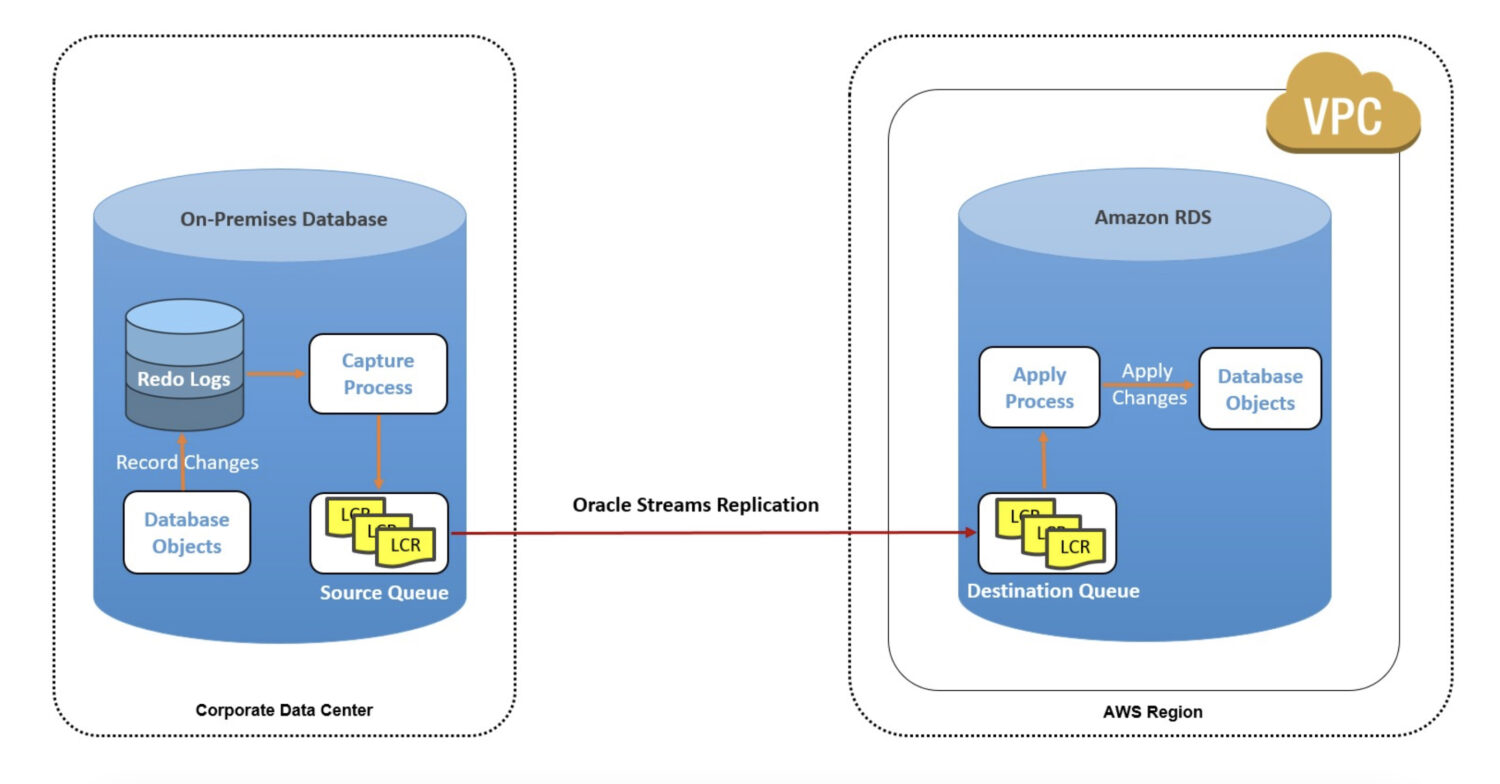
The Oracle DB was undoubtedly probably the most broadly used industrial database in the previous few many years. Each time an organization wanted a sturdy and high-performing database answer, Oracle DB was the primary selection. And for a lot of good causes.
How It Differs
Oracle is a strong and functionality-rich platform that may serve an unlimited quantity of even completely totally different setups and necessities. Over time, this DB grew to become the final word go-to answer in case you require state-of-the-art reliability, scalability, and maintainability dwelling on the on-premise {hardware} infrastructure.
Fundamental Benefits
Listed below are among the primary benefits you get when selecting such a mature database system as Oracle:
✅ Nice help and choices for efficient backup and restore actions.
✅ Extensive space of potentialities for learn how to tune the efficiency of the DB answer contained in the system. Even lengthy after, the answer is already in manufacturing. Help and upkeep actions inside this platform are very easy to arrange, and they’re very efficient.
✅ Excessive customization of the DB answer. Since Oracle DB helps an in depth quantity of functionalities to select from, you as a system integrator have loads of choices to construct a sturdy system consisting of precisely these functionalities that your platform wants (assume triggers, partitions, subpartitions, automated major keys sequences, views, snapshots, knowledge constraints, distinctive keys, mixed keys, international keys, composite indexes, and so forth.). It helps the whole lot.
✅ Simple administration of database actions and processes. Devoted administration consoles and dashboards, and lots of instruments created by Oracle and devoted solely to directors to make use of out of the field.
✅ Help of multi-user environments. If the requirement is to help 1000’s of distinct energetic customers on the similar time, Oracle is the reply.
Fundamental Disadvantages
Oracle DB may be very versatile relating to vertical scaling of the efficiency. However much less so whenever you want robust horizontal scaling. Which means it’s simple to improve to a stronger CPU, extra reminiscence, and space for storing on a cluster DB.
But when your knowledge grows considerably in a short while – which is the same old case that occurs with knowledge within the cloud, the efficiency bottlenecks will turn into extra seen and tougher to resolve. Spreading the info throughout a number of clusters and anticipating them to develop dynamically will turn into a primary requirement going ahead. On this case, you may discover Oracle DB beginning to be extra limiting than fulfilling your future wants.
One other potential drawback is perhaps the fee. Oracle DB helps many options, however lots of them additionally come at a price. Much more so if a number of clusters are in place and bodily efficiency upgrades are needed. Which means software program tuning of the info mannequin isn’t ample anymore. For extra administrative instruments and options to be obtainable, you’ll need to buy an enterprise license. It will additional enhance the already excessive prices.
Lastly, Oracle DB isn’t a local AWS DB service, which suggests you shall not count on full help from AWS. Fairly orient to Oracle help. However then take care of Oracle and AWS ache factors in parallel and with two totally different units of help groups.
When to Select
Selecting the cloud counterpart of the Oracle DB is probably the most pure resolution to take each time your present on-premise answer is already utilizing Oracle DB. It should additionally make the migration and swap to the cloud-based answer as simple because it will get.
Due to this fact, select the AWS Oracle DB within the case:
- You count on the cloud DB will help the identical processes and functionalities because the on-premise variant for the foreseeable future.
- You don’t plan to combine the DB with too many AWS native companies in a short time.
- You don’t count on the present knowledge quantity will develop considerably in a brief time frame.
- You require the help of an enormous quantity of functionalities in place. That’s, it could be tough to lose a few of them at present in place when switching to the cloud.
- Your system should help a whole lot of energetic customers on the similar time (or extra).
Instance of Use
- Massive telecommunication methods for billing, CRM, and middleware knowledge.
- Customized DB implementations for automotive database methods, built-in with a number of totally different customized or third-party vendor instruments.
- Packaged methods options for the banking business, the place Oracle is already a hard and fast a part of the packaged answer from the distributors and finally integrates further customized DB parts into one advanced implementation.
AWS Aurora DB
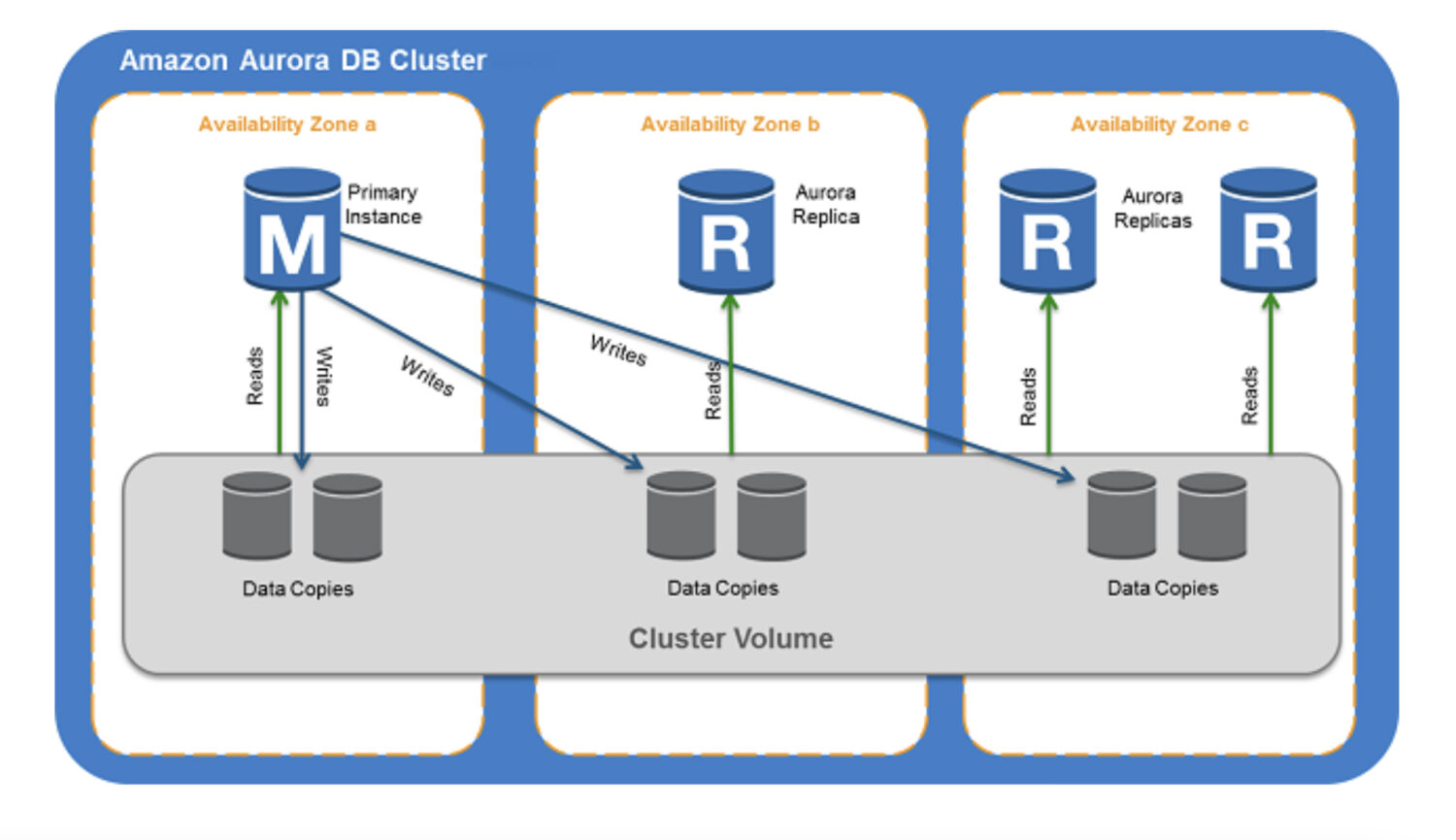
In some ways, Aurora is the direct reverse of Oracle, even whether it is nonetheless a relational database.
How It Differs
Autora DB is a local database service in AWS. AWS provides it full help and ongoing growth and deeply integrates it with the remainder of the AWS companies ecosystem.
Aurora DB doesn’t attain that stage of performance diversification as Oracle already has. Nevertheless it was born within the cloud (in contrast to Oracle). Since AWS additional develops Aurora, the performance hole may finally be smaller sooner or later than it’s at this time.
In some ways, Aurora is already forward of Oracle, particularly relating to integration with different AWS cloud companies. And since Amazon created Aurora with a cloud ecosystem in thoughts, Aurora is prepared for enormous knowledge revenue and enhance over time, so horizontal scaling is a powerful property.
Fundamental Benefits
I’d say the principle benefits of Aurora DB are:
✅ Very versatile expansibility of read-only DB copy cases. These you may create simply in seconds. Learn-only cases share the identical DB logs of the principle database from which they originate. Which means creating a brand new read-only database doesn’t require synchronizing all the info; it does robotically by sharing the prevailing ones.
✅ Massive knowledge progress prepared – horizontal scaling is a giant function of Aurora DB. Including new clusters and increasing the scalability throughout totally different availability zones is so simple as it will get. Aurora is then very efficient in choosing giant quantities of information very quick.
✅ You possibly can select whether or not to make use of the server or serverless mode of Aurora DB. Among the options can be lacking in serverless mode. However you get lots of flexibility and value optimizations when selecting serverless mode.
✅ Automated backups and simple point-in-time revert. One other spotlight is that Aurora DB can do simple day by day backups, and restoring the total database to any cut-off date is way easier. You possibly can mix all the benefits of the cloud atmosphere right here, as at all times obtainable free house, quick inner-AWS operations, and a devoted Aurora DB function that targets quick restoration occasions and quick downtime.
✅ Help for both MySQL or PostgreSQL DB engine, so you may decide whichever fits you.
Fundamental Disadvantages
- Despite the fact that Aurora is arguably probably the most feature-rich native relational database you may select in AWS, it’s nonetheless lagging behind Oracle on this regard. It’s comprehensible; Oracle had way more time to develop these options prior to now. The actual fact stays that Aurora DB is, with every launch, stronger and nearer.
- There isn’t any equal to Aurora DB within the on-premise house. You possibly can argue that previous databases constructed inside MySQL or PostgreSQL databases are an in depth match – and from a compatibility perspective, they absolutely are. However they don’t seem to be the strict equal. Which means the migration won’t be so easy. You will have to customise and implement migration processes to make sure they may switch knowledge from on-premise and retailer it into Aurora DB, all within the right knowledge mannequin format.
- Numerous AWS limits, particularly these exhausting ones, are an element which may, in some instances, detract from selecting this DB as a goal to go ahead. It is extremely seemingly it is possible for you to to work round all of them, however for some, you’ll need some extra severe funding into refactoring, which finally can enhance the general prices of migration compared to one other database goal.
When to Select
In a nutshell, selecting Aurora DB because the goto relational database within the AWS platform isn’t a nasty resolution, however achieve this, particularly if:
- You’ll construct a cloud system from scratch round a relational database.
- You count on the best stage of compatibility and integrality with as a lot as potential totally different native AWS companies.
- You count on your knowledge quantity will develop considerably over a short while.
- You intend to begin a number of spin-off proofs of idea (POC) tasks the place you may leverage all the benefits of the serverless model of a relational database.
Instance of Use
- A serverless platform for analyzing giant quantities of infrastructure image knowledge.
- Utilization of machine studying fashions to course of your knowledge lake data and generate enterprise predictions for what you are promoting.
- Netflix makes use of Aurora DB for quick parallel question executions over their catalog knowledge.
AWS Microsoft SQL DB
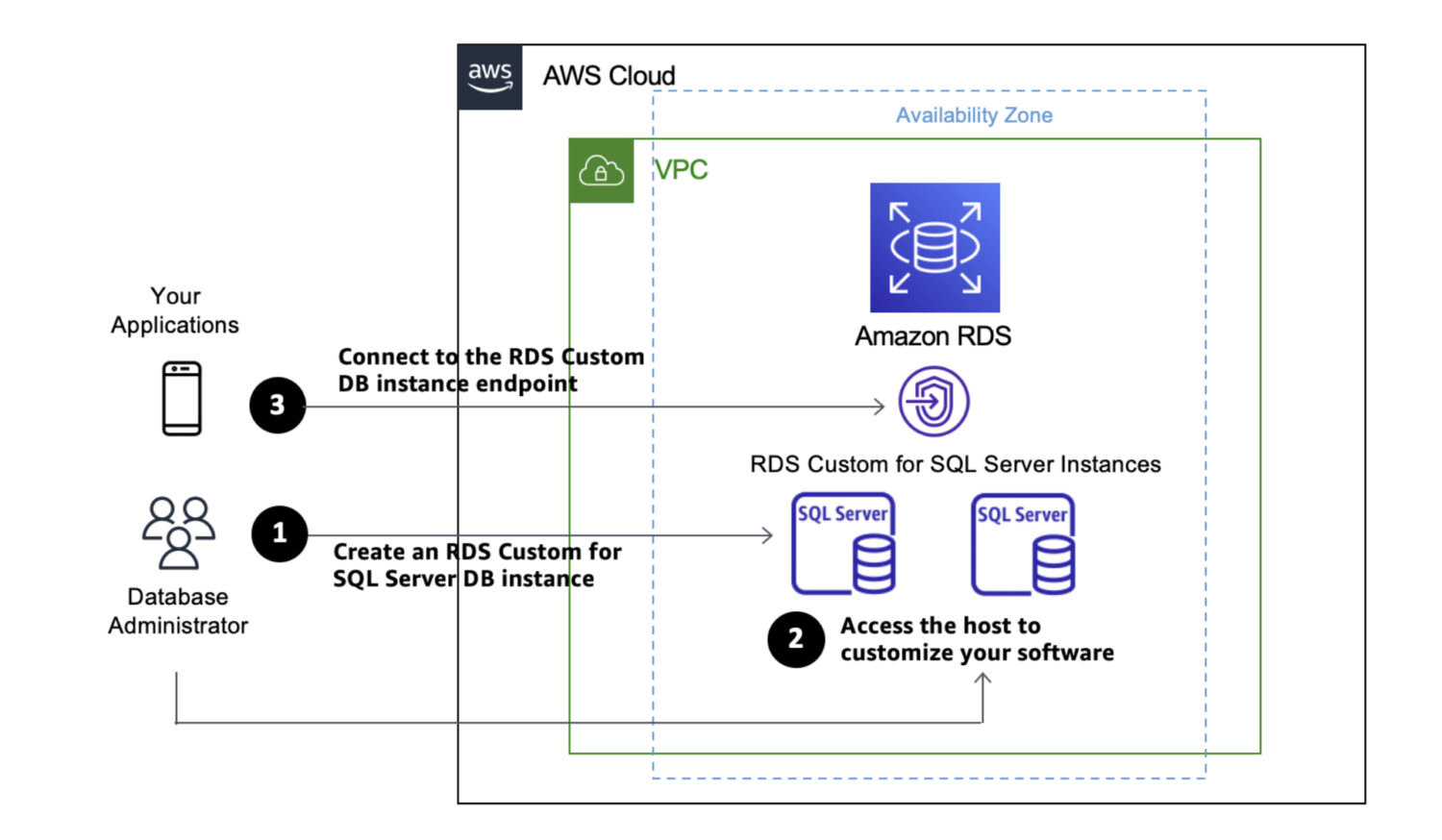
This database is, in some methods, comparable with Oracle. It was additionally created a very long time earlier than the cloud grew to become a factor, and there are lots of present on-premise customers which might be planning emigrate to the cloud, utilizing the MS SQL DB because the supply.
How It Differs
Regardless of these similarities, MS SQL DB remains to be the one which had a lot much less use prior to now compared to Oracle DB.
At the very least judging from my private expertise perspective. I used to be concerned in a number of Oracle tasks during the last twenty years, however solely in a handful of instances the place MS SQL DB was concerned. And admittedly, I didn’t prefer to take care of it wherever close to as a lot as I did with Oracle DB.
Anyway, I nonetheless acknowledge a big section of corporations utilizing the MS SQL DB as the principle database that’s the single level of fact to all the info.
Fundamental Benefits
Fundamental benefits that MS SQL DB has:
✅ Good integration with different Microsoft companies and software program, in case it is a function you acknowledge as useful to your case.
✅ Simple customization with customized code extensions, largely within the type of Javascript code modules. This may be helpful when coping with extra advanced enterprise processes and jobs to be scheduled over the database.
✅ Fairly easy from an administration perspective (at the very least compared to Oracle DB).
✅ It in all probability makes way more sense within the Azure cloud ecosystem, as there it’s thought of a local relational database system, way more appropriate with different cloud companies there.
Fundamental Disadvantages
- Equally to the Oracle DB case, as a non-native database within the house of AWS cloud, all of the help and downside decision needs to be pushed by way of separate devoted MS SQL help groups.
- Much less diversification of performance help usually each time evaluating it to Oracle DB or Aurora DB.
- Not appropriate for a lot of energetic customers.
- Horizontal scalability is a good greater challenge than with the Oracle DB case.
When to Select
MS SQL DB is greatest suited if you wish to migrate the prevailing MS SQL DB on-premise into the cloud with as few distractions round as potential. Additionally, you don’t count on that integration with different AWS cloud companies to a lot of an extent.
Then the MS SQL DB will dwell contained in the AWS cloud as a totally managed database with limitless storage and prolonged choices for horizontal scalability and excessive availability in comparison with the on-premise various.
Instance of Use
- Performing as a center floor platform for customized integration of varied database methods (may very well be even of a distinct sort, for instance, Oracle DB).
- Numerous smaller scale tasks the place the price of the database answer is a factor to contemplate, and the price range is extra restricted (and doesn’t enable to go for a full-fledged Oracle DB answer).
AWS MySQL and PostgreSQL DB
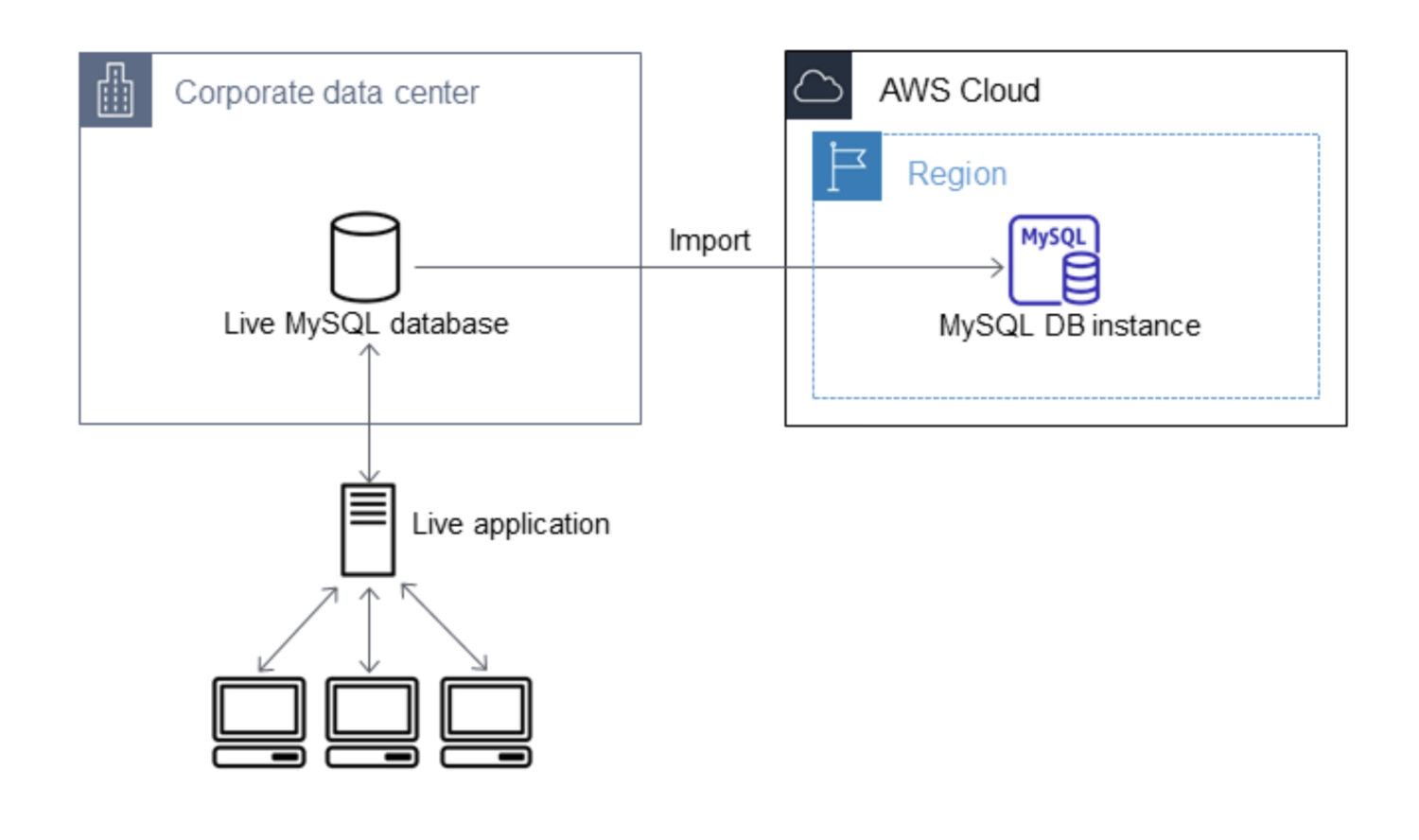
These databases are each open supply by origin (though now already purchased by greater corporations), finally giving them each advantages and drawbacks.
They’re additionally not as feature-rich as different options, particularly of their native kind. And whilst you can nonetheless use them each in AWS infrastructure on this kind, I doubt this nonetheless makes an excessive amount of sensible sense.
How It Differs
When migrating the on-premise DB (be it MySQL or PostgreSQL) to the AWS cloud, you may simply straight use Aurora with MySQL or PostgreSQL engine as a goal and so get all the extra advantages Aurora DB has to supply.
Certain, it is going to imply some further effort for the migration section compared to the case when a local various can be chosen. However that further effort can be solely marginal.
Their primary profit lies within the prices and that they’re greatest appropriate for small venture initiatives, the place robustness isn’t actually a subject.
Fundamental Disadvantages
- Each are fairly restricted in supported performance, and you must be ready for restricted choices for maintainability and administration.
- Not appropriate for large-scale tasks with many energetic customers.
- Not greatest for high-performance options and the place fixed efficiency tuning is a powerful requirement.
When to Select
- If price is the principle subject and the price range may be very restricted.
- If the venture initiative is somewhat small.
- If the info quantity is somewhat small and there aren’t any plans for vital progress.
Instance of Use
- Private tasks initiatives the place the price of the infrastructure shall be as minimal as potential.
- Small POCs that will show that the proposed idea might be realized.
- Small corporations’ tasks with small quantities of information.
- For small SaaS tasks, not requiring an in depth quantity of database masses, simply knowledge storage in a relational knowledge mannequin means is all that’s actually required.
AWS MariaDB
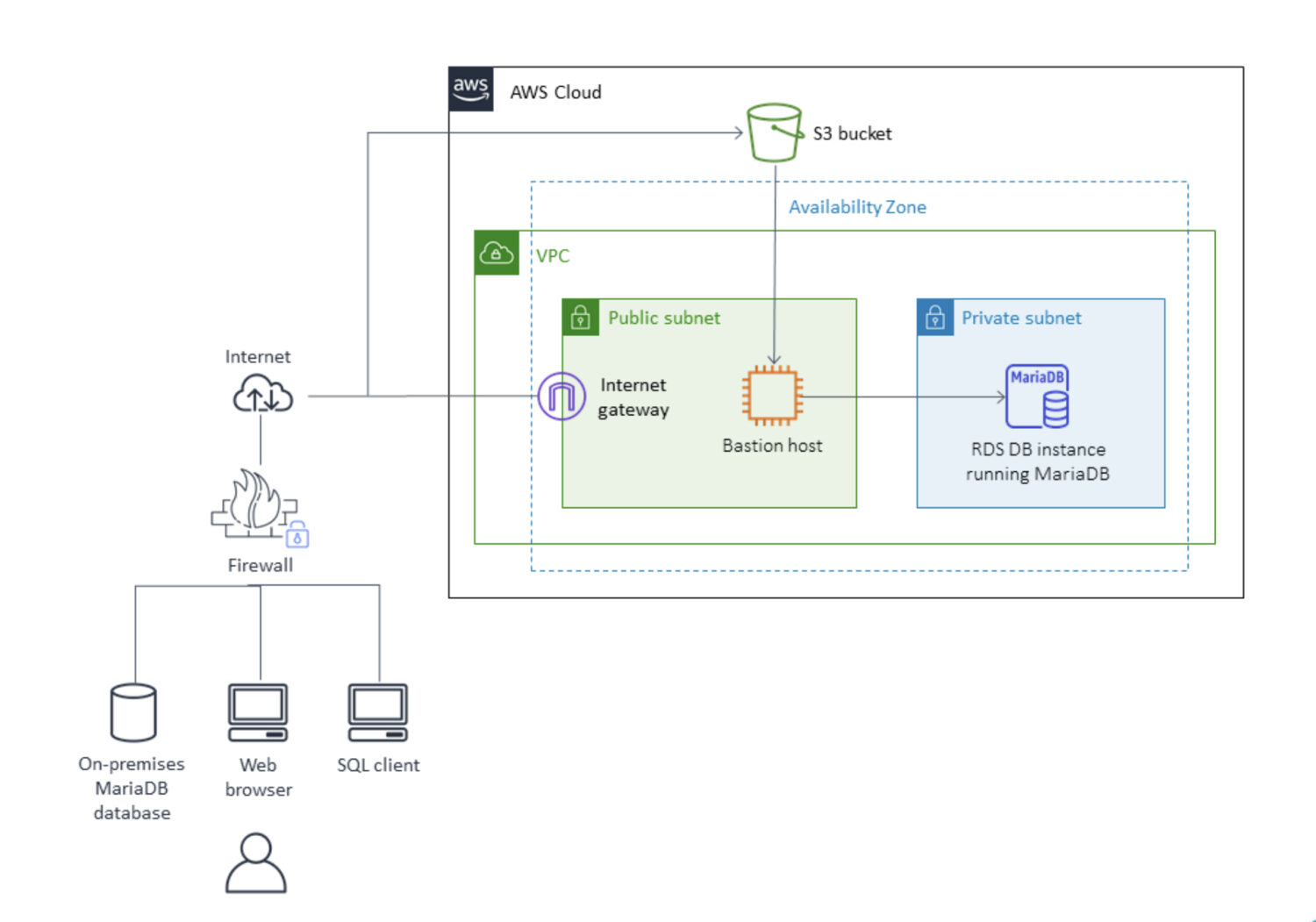
MariaDB remains to be a totally open-source database created by former MySQL builders (after MySQL’s acquisition by Oracle).
By way of compatibility, any MySQL DB will run simply tremendous inside MariaDB.
How It Differs
Operate-wise, there usually are not many variations from MySQL to count on, however the open supply property is the spotlight.
Technically, there’s fairly a variety of helpful options which might be obtainable in MariaDB however not in MySQL.
Fundamental Disadvantages
Fairly just like the MySQL case.
When to Select
- In the event you completely love your present MariaDB on-premise implementation and don’t need to migrate to Aurora DB, for no matter cause.
- If you wish to keep really open-source together with your database answer contained in the AWS cloud ecosystem.
Instance of Use
Fairly just like the MySQL case.
Last Phrases
Equally, as Oracle DB was the answer within the on-premise world, evidently Aurora DB is taking this place within the AWS cloud world. At the very least from the angle of the function units, that is the closest you will get.
And even if you’re probably not after the principle stakeholders, it’s good to know there are nonetheless fairly easy choices on learn how to migrate your present database into the AWS cloud.
Higher but – with this swap, you’ll robotically get options you had been almost certainly missing till then. Most significantly, higher storage expandability, excessive availability, and horizontal scalability are all native options of the cloud atmosphere.

